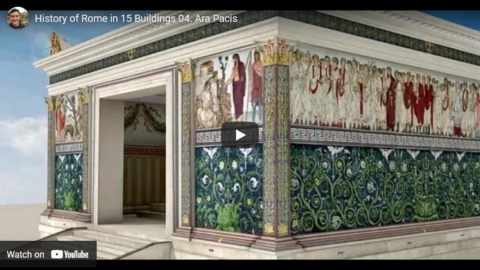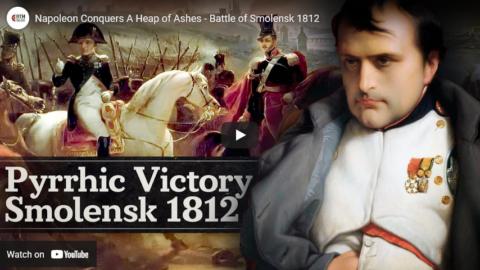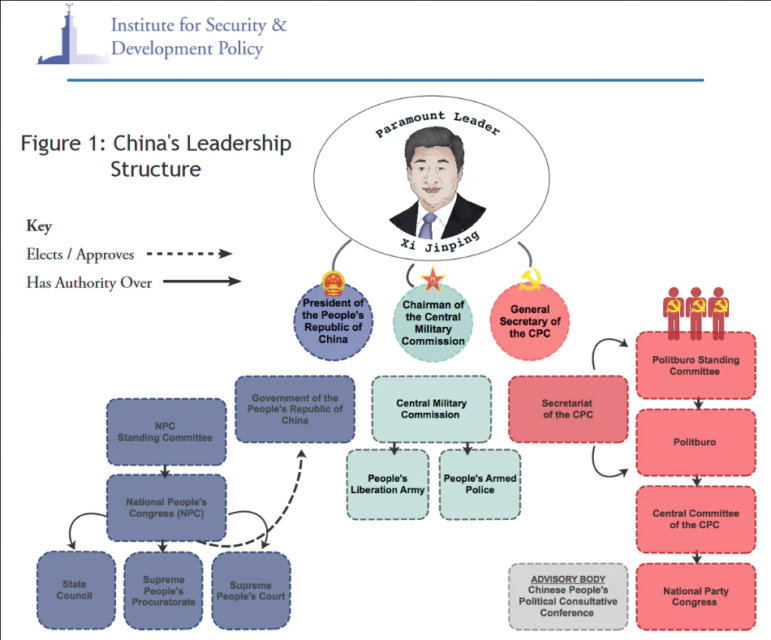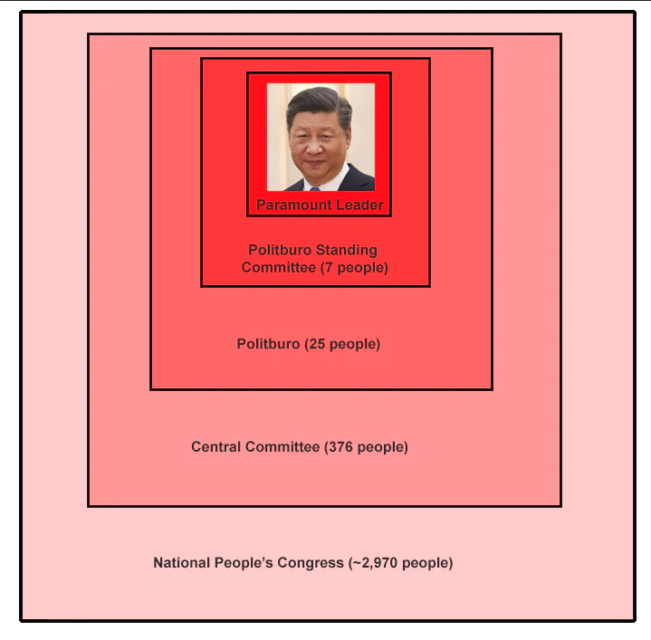The people most likely to grasp that wealth can be created are the ones who are good at making things, the craftsmen. Their hand-made objects become store-bought ones. But with the rise of industrialization there are fewer and fewer craftsmen. One of the biggest remaining groups is computer programmers.
A programmer can sit down in front of a computer and create wealth. A good piece of software is, in itself, a valuable thing. There is no manufacturing to confuse the issue. Those characters you type are a complete, finished product. If someone sat down and wrote a web browser that didn’t suck (a fine idea, by the way), the world would be that much richer.*
Everyone in a company works together to create wealth, in the sense of making more things people want. Many of the employees (e.g. the people in the mailroom or the personnel department) work at one remove from the actual making of stuff. Not the programmers. They literally think the product, one line at a time. And so it’s clearer to programmers that wealth is something that’s made, rather than being distributed, like slices of a pie, by some imaginary Daddy.
It’s also obvious to programmers that there are huge variations in the rate at which wealth is created. At Viaweb we had one programmer who was a sort of monster of productivity. I remember watching what he did one long day and estimating that he had added several hundred thousand dollars to the market value of the company. A great programmer, on a roll, could create a million dollars worth of wealth in a couple weeks. A mediocre programmer over the same period will generate zero or even negative wealth (e.g. by introducing bugs).
This is why so many of the best programmers are libertarians. In our world, you sink or swim, and there are no excuses. When those far removed from the creation of wealth — undergraduates, reporters, politicians — hear that the richest 5% of the people have half the total wealth, they tend to think injustice! An experienced programmer would be more likely to think is that all? The top 5% of programmers probably write 99% of the good software.
Wealth can be created without being sold. Scientists, till recently at least, effectively donated the wealth they created. We are all richer for knowing about penicillin, because we’re less likely to die from infections. Wealth is whatever people want, and not dying is certainly something we want. Hackers often donate their work by writing open source software that anyone can use for free. I am much the richer for the operating system FreeBSD, which I’m running on the computer I’m using now, and so is Yahoo, which runs it on all their servers.
* This essay was written before Firefox.
Paul Graham, “How to Make Wealth”, Paul Graham, 2004-04.
April 11, 2022
QotD: Programmers as craftsmen
April 10, 2022
“Canadian media, ‘independent’ or otherwise, is about as sparkly as dry toast”
It’s impossible to disagree with the editors at The Line about the negative impact of government involvement, oversight and subsidization of the media, and the ensuing neutralization (or even Pablumization) of the news presented to Canadians:

“Newspaper Boxes” by Randy Landicho is licensed under CC BY 2.0
There is no way to create such a system without an inherently political process to answer philosophically fraught questions like “what is news?” and “what is a journalist?” And that takes us ever closer to the perilous path of state credentialization of a profession that only operates properly when it is free of both undue government interference and of government assistance. State meddling is bad for journalism whether the intent be good, bad or indifferent.
Every outlet is beholden to the people who cut the cheque, and if your business model relies on impressing government grant gifters or corporate social responsibility committees, then your content is going to reflect the milquetoast sensibilities of your true audience.
Which, bluntly, is why so much Canadian media, “independent” or otherwise, is about as sparkly as dry toast. Whole grain. To rely on government money is not only philosophically untenable, it is almost inherently corrupting. There are public journalism enterprises in Canada, including, for instance, the CBC and TVO, and your Line editors contribute to both. You can trust us when we tell you that the people in charge of those organizations work very, very hard to avoid the impossible conflicts public funding of journalism cannot help but produce. The readers can judge the results, but no one in either outlets pretends it’s easy. It’s not.
And in case it needs to be noted here again, The Line accepts no public cash. Not a dime. We rely entirely on paid subscriptions from our reader base, and we like it that way. Our relationship with you, the reader, is what allows us to be risky, innovative, and occasionally belligerent. You’re here because you like us — you really like us! — and as a result, we serve only you. That doesn’t mean that you’re always going to agree with us, of course, but rather that you can trust us to tell you what we really think.
We looked into the QCJO program and although we believe we would qualify for the program, we are simply too horrified by its mere existence to consider applying. This puts us at a severe competitive disadvantage, and one that can only be overcome by outperforming everyone else.
Mussolini is Tired of War – WW2 – 189 – April 9th , 1943
World War Two
Published 9 Apr 2022Adolf Hitler meets with Benito Mussolini to hopefully restore his flagging morale and convince him that the Axis can hold out in North Africa, but the situation there grows more precarious and this week there the Allies advancing from the west and the east link up for the first time. The Axis are also holding out in the Caucasus, as new Soviet attacks to take Krymskaya begin.
(more…)
Andrew Heaton’s dog problems
In his most recent email newsletter, Andrew Heaton explains the problem he’s encountered while visiting a national park with a foster dog:
I am writing this in the woods during a brief respite from the dog trying to strangle himself.
I have been fostering Wallace for about a month, and the shelter informs me a nice man is threatening to adopt him, and so there is added social pressure to keep him from asphyxiating. Obviously I don’t want any dog to suffocate, least of all Wallace. But it would be embarrassing on top of all that if I had to awkwardly call the shelter and explain I can’t return Wallace on account of his apparent suicide in the woods. I’d probably wind up on a watch list of some kind, or have my picture on the wall with the caption of “possible murderer”.
Allow me to explain. Wallace and I decided to go camping over the weekend, where I assumed I would get to lounge around a hammock and read books, while Wallace, enthralled with nature and new smells, would sit attentively on a bluff looking into the middle distance like the platonic canine ideal in a Kinkaid painting. To maximize his enjoyment, I purchased a twenty-five foot cord, which I further hooked to a retractable leash, affording Wallace a respectable illusion of freedom and autonomy.
It turns out that when you take dogs camping, they are only interested in two things: hiking, and strangling themselves. We went on a two hour (!) hike earlier in the morning, then retreated to camp for lunch. That’s when Wallace developed the new and exciting hobby of trying to off himself as quickly as possible.
If there are six saplings in his immediate vicinity, he will gleefully wrap himself around all of them in a diagram reminiscent of how quarks orbit sub-atomic particles, then conclude the adventure by accidentally tying a slip knot or a noose or some other damn thing and commence dyeing.
I am told by hunters that animals will gnaw their limbs off when trapped, but Wallace shows no initiative in biting through his leash, despite having previously chewed his way through a variety of wood-handed tools I borrowed from my neighbor. Instead, his entire strategy for breaking his restraints is to angrily pee on them. Wallace seems to think the piss stream unleashed by his Herculean doggy prostate is sufficient to cut diamonds, and so surely can free him from the absorbent cloth tethering him to nine or ten saplings. So I free him, and make a mental note to buy a new leash upon our return.
I have also caught Wallace trying to drown himself by wrapping his leash around a submerged log, getting himself hopelessly tangled in the (stationary) tires of my car, and as near as I can tell, managing to tie asphyxiating knots around invisible things like radio waves and WIFI signals. Given sufficient time and as little as a shoelace, I think he could probably strangle himself around imaginary concepts like latitude lines, Bigfoot, or Modern Monetary Theory. I don’t know who previously owned Wallace, but I’m beginning to suspect Jeffrey Epstein.
You can subscribe to the newsletter here I believe: newsletter@mightyheaton.com
History of Rome in 15 Buildings 04. Ara Pacis
toldinstone
Published 27 Sep 2018Augustus dominates this fourth episode of our History of Rome, which uses the Ara Pacis Augustae (Altar of the Augustan Peace) to discuss the first emperor’s reign, reforms, and propaganda. I also threw in a gripping description of the Battle of Actium.
If you enjoyed this video, you might be interested in my book Naked Statues, Fat Gladiators, and War Elephants: Frequently Asked Questions about the Ancient Greeks and Romans. You can find a preview of the book here:
https://toldinstone.com/naked-statues…
If you’re so inclined, you can follow me elsewhere on the web:
https://www.reddit.com/r/AskHistorian…
https://www.instagram.com/toldinstone/To see the story and photo essay associated with this video, go to:
https://toldinstone.com/ara-pacis/Thanks for watching!
April 9, 2022
“Woke Disney” is far from a new thing
Geoff Shullenberger points out that Disney’s reputation for family-friendly media rests rather uneasily on the corporation’s actual products:
“Disney is the worst enemy of family harmony.” You’d be forgiven for thinking those words were uttered yesterday, given the number of conservative politicians and pundits castigating Disney for “grooming children” following its criticism of the “Don’t say gay” bill.
In fact, the statement appeared just over 50 years ago, in a polemical analysis of Disney cartoons written by two Marxist militants, the Chilean writer Ariel Dorfman and the Belgian sociologist Armand Mattelart. How to Read Donald Duck: Imperialist Ideology in the Disney Comic was published in Chile during the brief rule of Salvador Allende as part of an attempt by Allende’s leftist allies to push back against American cultural influence. The book became a bestseller, but after Augusto Pinochet’s 1973 coup, it was banned and publicly burned.
The Right’s current lament for the betrayal of “traditional families who want to hold onto innocent entertainment for their kids” proceeds from the premise that this “woke Disney” is a deviation from the company’s benevolent past. But Dorfman and Mattelart, all the way back in 1971, contested this assumption of innocence. Although their methodology is Marxian and their aims overtly anti-capitalist, their allegations foreshadow the American Right’s current concerns in surprising ways.
[…]
How to Read Donald Duck contains many of the expected Left-wing criticisms of patriarchy and gender roles, but it also includes observations that might be surprising to ideologues today. Notably, as one illustration of the propaganda functions taken on by Disney in the Global South, the authors remark that the US Agency for International Development has circulated films featuring Disney characters promoting contraception. They reinforce this association with the title of their chapter on Disney family dynamics: “Uncle, buy me a contraceptive …”
Like many radicals at the time, Dorfman and Mattelart saw the US state’s growing interest in controlling fertility in the developing world as consistent with a broader campaign to suppress the value placed on family in the subject nations of its economic empire; this was deemed to be in tension with values such as efficiency, productivity, individualism, and competition. Disney’s exclusion of references to reproductive sexuality, in this light, looks less like an attempt to protect childhood innocence, than part and parcel of the larger modern decoupling of sex from reproduction.
It all suggests that the supposed sexual innocence of Disney’s dreamscapes was never aligned with “family values” in the first place and the Right’s current war on Disney isn’t about family — it is simply the latest phase of its realisation that corporate America has now largely aligned itself with the values of the cultural Left.
For, in fact, Disney’s vast influence on the imaginations of children has been enabled by market society’s weakening of the authority of the family. With parents overburdened by the demands of work, important aspects of child-rearing are entrusted to the entertainment industry. Disney has capitalised on this exploding demand more than any other company. If we take “grooming” to simply mean instilling values alien to the family into children, Dorfman and Mattelart would suggest that Disney has never been innocent of this charge.
Bicycle – Can You Put a Gun on It? – WW2 Special
World War Two
Published 8 Apr 2022“Bicycling to victory! Soldiers were moved by trucks and trains to the front, transported on the backs of tanks and armoured vehicles into combat. But sometimes they also went by using the good old bicycle. Pedaling over the paved roads of Western Europe and East Asia, specialised bicycle-companies surprised through mobility and independence. Bikes were comparatively cheap to mass produce and did not need fuel nor fodder. So they proved a real alternative to those nations that had to budget their oil resources.”
(more…)
It wasn’t the Wuhan Coronavirus that crippled the world economy — it was government reaction to the pandemic
Dan Sanchez points out the undeniable truth that most of the economic damage we’ve sustained over the last two years wasn’t due to the pandemic itself, but to the incredibly disruptive public health measures almost every western government implemented in response (with huge connivance on the part of the legacy media and the social media companies):
… it will not be the coronavirus making us poorer, but the fallacy, embraced by officials from Beijing to DC, that central planners can manage society-wide problems, like “healing” a global pandemic or “fixing” a global supply chain.
As the great economists Ludwig von Mises and F.A. Hayek explained, societies and economies are inconceivably complex, and it is literally impossible for anyone to centrally plan something so far beyond their comprehension. To think otherwise is, as Hayek called it, a “fatal conceit”.
The fatal conceit of central planners is manifest in the very term “global supply chain”. The metaphor of a “chain” portrays the economy as something static and linear: something simple enough for a single mind to “fix”.
But, as Leonard Read vividly showed in his classic essay “I, Pencil”, even a seemingly simple good like a pencil is not the product of a single supply chain. Every good in the economy is descended from a vast “family tree” of innumerable factors of production. And all the family trees of all goods are intricately interconnected, making the economy, not a “chain”, but as economist Murray Rothbard depicted it, “a highly complex, interacting latticework of exchanges”.
This vast, dynamic latticework is self-healing and self-fixing: through the actions and interactions of its constituent individuals. Blundering, arrogant central planners only get in the way and make things worse.
That has been the lesson of free-market economists and social theorists going back to Adam Smith. The western world partly embraced that lesson, and it flourished as a result, becoming a beacon to the world. Starting in the 1970s, even Communist China emulated its example, opening up its markets. This was a humanitarian miracle for the Chinese people and a boon for us all. If not for Chinese manufacturing being integrated into the global division of labor, it is hard to imagine the west having the modern high-tech living standards and super-comfortable working conditions we enjoy (however precariously) today.
Whereas once China liberalized in emulation of the west, now the leaders of the “free world” are emulating (and, in the case of Canada’s prime minister, openly admiring) the authoritarianism of the CCP. As crises continue to mount, it is clear that this turn toward tyranny is putting our future at risk.
Tank Chats #142 | Humber Scout Car | The Tank Museum
The Tank Museum
Published 17 Dec 2021Our Patreons have already enjoyed Early Access and AD free viewing of our weekly YouTube video! Consider becoming a Patreon Supporter today: https://www.patreon.com/tankmuseum
Join David Fletcher this week for a Tank Chat on Humber Scout Car which is a relative of the Daimler Dingo.
Timestamp:
00:00 – Intro
00:26 – What is the Humber Scout Car
4:23 – The Humber post warVisit The Tank Museum SHOP & become a Friend: ►tankmuseumshop.org
Twitter: ► https://twitter.com/TankMuseum
Instagram: ► https://www.instagram.com/tankmuseum/
#tankmuseum #tanks
QotD: Temporary tattoos and cultural literacy
At a practical level, as a professor who regularly teaches East Asian philosophies, I die a little inside every time we experience a cultural phenomenon with a veneer of “wisdom from the East” on it. Having imbibed pop culture’s mystical Orient, students will arrive to my classes craving a deeper initiation into Eastern mysteries. Teaching these seekers of wisdom then becomes deflationary.
I was once at an art fair where there was a booth selling temporary tattoos. One of the tattoos was a Chinese character that was translated on the tattoo’s plastic label as “bitch”, an appealing bit of body art for the tough girls among us, I suppose. Except a far more straightforward and accurate translation of the character would be “prostitute”, or maybe “whore”.
Teaching students who fell in love with “Eastern philosophy” via our culture’s myriad Mr Miyagis is like being the one to tell someone her tattoo says “whore”. The tattooed will be better off knowing, but she won’t thank you for telling her. Pop-culture-induced orientalism usually does wash off, but the cleanup is far less alluring than wearing the myth. At least, I console myself, Kondo’s target market is the middle-aged, so maybe my young college students won’t show up with this particular “tattoo”.
Amy Olberding, “Tidying up is not joyful but another misuse of Eastern ideas”, Aeon, 2019-02-18.
April 8, 2022
Napoleon Conquers A Heap of Ashes – Battle of Smolensk 1812
Real Time History
Published 7 Apr 2022Sign up at https://curiositystream.com/realtimeh… and get Nebula bundled in.
Smolensk is an important symbolic city to the Russians in 1812, for Napoleon it’s a strategic objective he wants to conquer to improve is deteriorating supply situation. The Battle of Smolensk leads to an inferno in the city, it gets virtually destroyed and nearly all residents flee.
» SUPPORT US ON PATREON
https://patreon.com/realtimehistory» THANK YOU TO OUR CO-PRODUCERS
John Ozment, James Darcangelo, Jacob Carter Landt, Thomas Brendan, Kurt Gillies, Scott Deederly, John Belland, Adam Smith, Taylor Allen, Rustem Sharipov, Christoph Wolf, Simen Røste, Marcus Bondura, Ramon Rijkhoek, Theodore Patrick Shannon, Philip Schoffman, Avi Woolf,» SOURCES
Der Feldzug der Österreicher gegen Rußland im Jahre 1812. Aus offiziellen Quellen von Ludwig Freiherrn von Welden, Wien 1870.
Vojtêch Kessler: Der österreichische Pyrrhos – Der Feldzug des österreichischen Auxiliar-Korps im Jahre 1812 in den Briefen des Oberbefehlshabers Karl Fürst von Schwarzenberg an seine Frau.
Boudon, Jacques-Olivier. Napoléon et la campagne de Russie en 1812. 2021.
Holzhausen, Paul. Die Deutschen in Russland 1812. Leben und Leiden auf der Moskauer Heerfahrt. Berlin 1912.
Lieven, Dominic. Russia Against Napoleon. 2010.
Rey, Marie-Pierre. L’effroyable tragédie: une nouvelle histoire de la campagne de Russie. 2012.
Zamoyski, Adam. 1812: Napoleon’s Fatal March on Moscow. 2005.» OUR STORE
Website: https://realtimehistory.net»CREDITS
Presented by: Jesse Alexander
Written by: Jesse Alexander
Director: Toni Steller & Florian Wittig
Director of Photography: Toni Steller
Sound: Above Zero
Editing: Toni Steller
Motion Design: Toni Steller
Mixing, Mastering & Sound Design: http://above-zero.com
Digital Maps: Canadian Research and Mapping Association (CRMA)
Research by: Jesse Alexander
Fact checking: Florian WittigChannel Design: Simon Buckmaster
Contains licensed material by getty images
Maps: MapTiler/OpenStreetMap Contributors & GEOlayers3
All rights reserved – Real Time History GmbH 2022
The structure of the Chinese government
Scott Alexander reviews The Third Revolution, by Elizabeth Economy, although as he says up front, “It’s a look through recent Chinese history, with The Third Revolution as a very loose inspiration.”:
How Does China’s Government Work?
The traditional answer is a flowchart like this one (source):
But you could give a similarly convoluted flowchart for America, and it would tell people much less than words like “democracy” or “balance of powers”. What’s the Chinese equivalent?
I found it a little more helpful to see it diagrammed it as a series of nested squares:
The inner levels have real power, and the outer layers are theoretically overseers but actually rubber stamps. Things get more and more rubber-stampy as you go out, culminating in the National People’s Congress, which recently voted to re-elect Xi by a vote of 2,970 in favor, 0 against — it’s so irrelevant that it’s literally called “the NPC”.
Who chooses the members of the inner groups? In theory, the outer groups; for example, the Central Committee is supposed to elect the Politburo Standing Committee. In practice, these selections tend to be of the “2,970 in favor, 0 against” variety, so they must be taking marching orders from someone. Who? The Chinese government doesn’t talk about it much, but probably the members of the Politburo Standing Committee hand-pick everyone, including the Paramount Leader and their own successors.
How do they pick? Mostly patron-client relationships. Every leading politician cultivates a network of loyal supporters; if he takes power, he tries to put as many of his people into top posts as he can. The seven Politburo members wheel and deal with each other about whose clients should get which positions, including any unoccupied Politburo seats.
If the two word description of US politics is “democracy, checks-and-balances”, then the two word description of Chinese politics is “oligarchy, patrons-and-clients”. If this seems exotic, it shouldn’t: it’s not much different from how the US fills unelected posts like “ambassador” and “White House staffer”. The Trump presidency put this into especially sharp relief, either because Trump did it more blatantly than usual or just because Trump’s clients were so obviously different from the normal Washington crowd. Consider eg the appointment of Jeff Sessions (among the first Congressmen to endorse Trump) as Attorney General.
In the US, this is a peripheral part of the system, checked by democracy. In China, it’s the whole game.
Chinese C96 “Wauser” Broomhandle
Forgotten Weapons
Published 10 Nov 2016Cool Forgotten Weapons Merch! http://shop.bbtv.com/collections/forg…
The C96 Mauser was a very popular handgun in China in the 1920s and 30s, which naturally led to a substantial number of domestically-produced copies of it. These ran the full range of quality, from dangerous to excellent. This particular example falls into the middle, appearing to be a pretty fair mechanical copy of the C96 action. However, it does exhibit classic Chinese misspelled markings — the workers who made these guns often did not actually read English (or German), and made best-guess attempts at copying the markings on authentic firearms. The result was sometimes something like the Wauser.
QotD: The fearlessness of De Gaulle
Like many monsters — for he could be a monster to those who defied him, and was often cruel and unfair to his most devoted supporters — he had enormous charm when he chose to turn it on. He was deeply mischievous and enjoyed puzzling and wrong-footing others. When he did not wish to give ground, he could be obtuse, an experience described by one victim as like “being confined … with a cormorant who spoke only cormorant.”
The evidence suggests that he was one of those dangerous people who simply do not know what fear is, and that he discovered this quite early in his long life. If a sergeant had not fallen dead on top of the young Lieutenant de Gaulle when he first went into battle at Dinant in August 1914, he would probably have died in some useless, gallant sacrifice and never have been heard of again. If he had not been knocked unconscious by the blast of a grenade at Verdun in March 1916, it is hard to believe that he would have allowed himself to be taken prisoner by the Germans. In that case he would almost certainly have died in that frightful battle, or not long afterward, another silent shade in that huge legion of shades who marched off into the dark during that appalling war.
Only his wife Yvonne was unimpressed by his grandeur, more than once urging him to retire, or puncturing his ambition. During the long, frustrating wilderness years between his wartime glory and his final presidential triumph, he mused to her that he might one day repeat his great rallying call of 1940. Using the rather patronizing endearment “Pauvre Ami,” she declared flatly, “Nobody will follow you.” He snapped back, “Shut up, Yvonne! I am old enough to know what I want to do!” In fact, on that occasion he was wrong and she was right. She even mocked his soldierly abilities. When the general’s aides suggested that they might install a machine gun at their remote, forbidding country home in Colombey, in case of an attack by communists, Yvonne scoffed that her husband would have no idea how to use it. Perhaps she would have.
Peter Hitchens, “A Certain Idea of France”, First Things, 2019-04.












